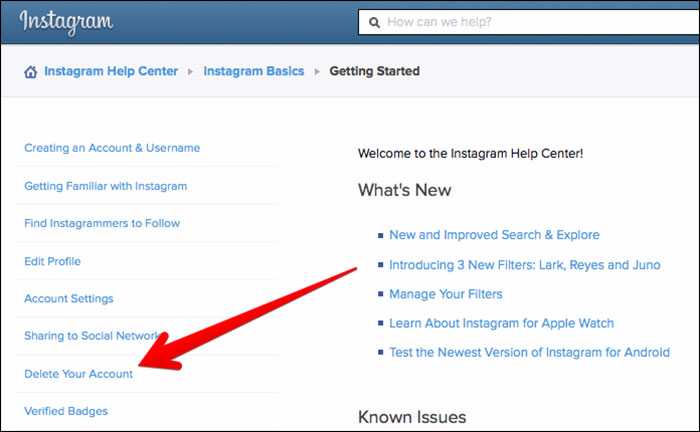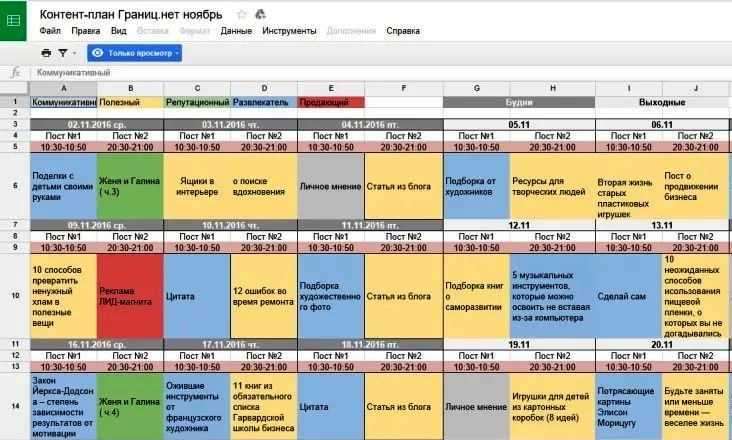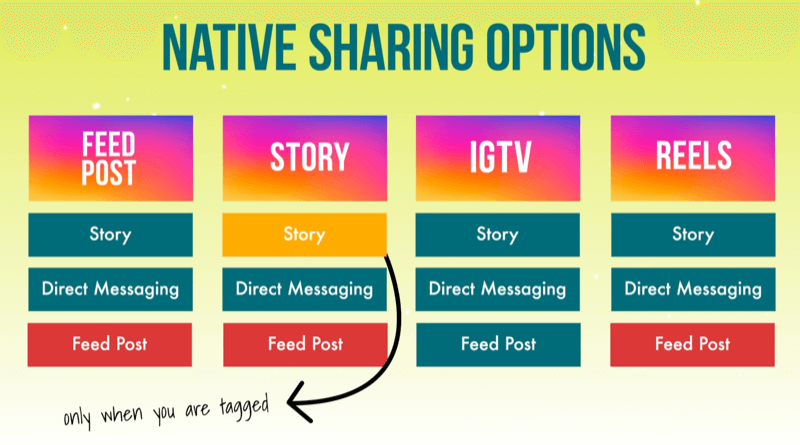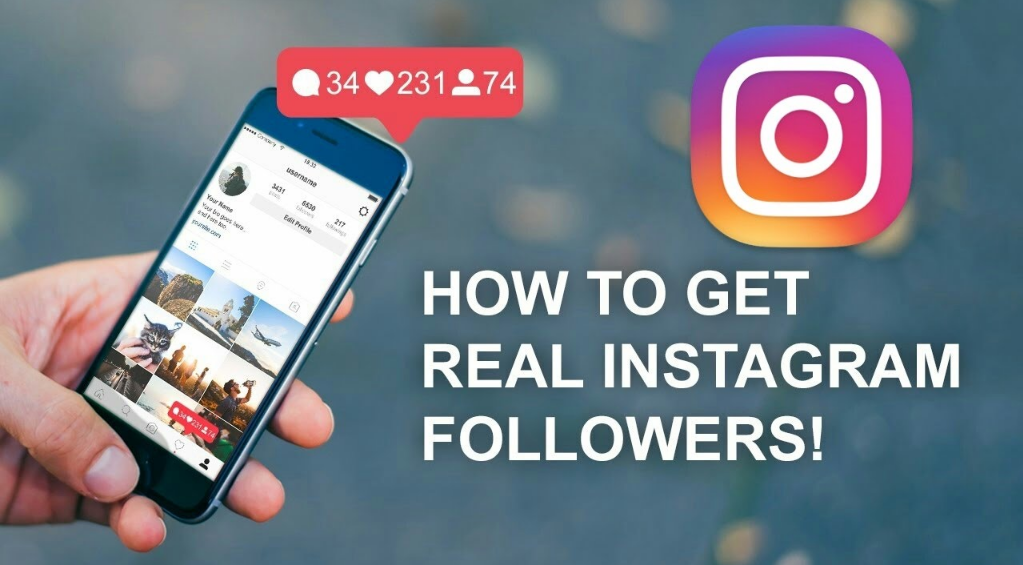How to tell a fake account on facebook
How to Spot Fake Profiles on Facebook
Facebook is a great place to meet new people, build relationships, and make the best of your time on the internet. Because Facebook was designed to be a close-knit community, it is one of the most preferred platforms for personal conversations and close circles.
Unfortunately, one of Facebook's biggest strengths—close personal interaction—is often exploited for malicious purposes. Sometimes, the person you're having a conversation with might not be who you think they're. In an era of fake online profiles, it's important to stay vigilant. Here's a quick guide on how to spot a fake profile on Facebook.
Why Do People Create Fake Facebook Profiles?
Surely, there's a lot to gain from using your real identity on Facebook. Your friends are able to find you easily, and you'd build a trustworthy brand if you do business on the platform. So why do people create fake Facebook profiles anyway?
Well, one of the main reasons is to create a phantom identity or assume the identity of others. So, for instance, a male college student from New York could make himself into an airline pilot living in California. With that, he could increase his chances of, maybe scoring a cute female friend on Facebook.
Scammers use fake profiles of people's family members to trick people out of confidential information they'd typically not share with a stranger. They also use Facebook accounts impersonating celebrities or legitimate business organizations to fleece people of huge amounts of money. Once someone is able to assume a fake identity on Facebook and convince people that they're who they say they are, the possibility of what could go wrong is endless. So how exactly do you spot a fake Facebook account or profile?
5 Tips for Spotting a Fake Facebook Profile
At first glance, a fake Facebook profile isn't any different from a genuine one. However, the devil is in the details. Here are some tips for identifying a fake profile on Facebook:
1. Fake or Stolen Photos
Fake profiles don't have a lot of things to say about their day-to-day life because, well, they aren't living it.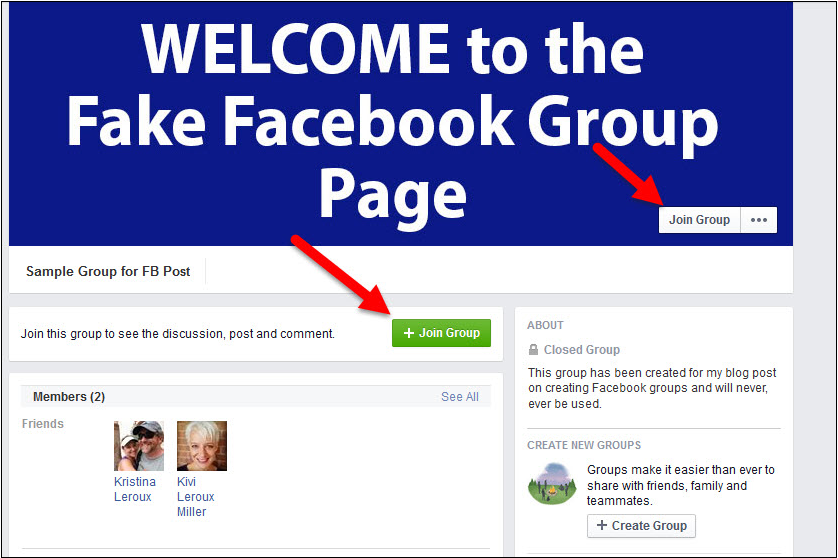 Instead, they opt for using a lot of photos to create a semblance of being active. One thing that stands out is the nature of the photos they post. Because they aren't living the life they claim, they'll typically have to steal the photos of people they're impersonating. This is especially the case with fake Facebook profiles used by online dating scammers.
Instead, they opt for using a lot of photos to create a semblance of being active. One thing that stands out is the nature of the photos they post. Because they aren't living the life they claim, they'll typically have to steal the photos of people they're impersonating. This is especially the case with fake Facebook profiles used by online dating scammers.
If you suspect an account to be fake, you can do a simple Google reverse image search. Or, you can use other dedicated image search tools like TinEye and Pixsy. The process is fairly simple, just upload the photo and start searching. If you find the same image posted at an earlier time somewhere else, it could be that the account you're interacting with is a sham.
2. An Inconsistent Timeline
A lot of the fake accounts on Facebook are pawned off or hacked accounts. There's a surprisingly thriving black market for old Facebook accounts. If a person tries to impersonate another person with a new Facebook account, it's easier to spot.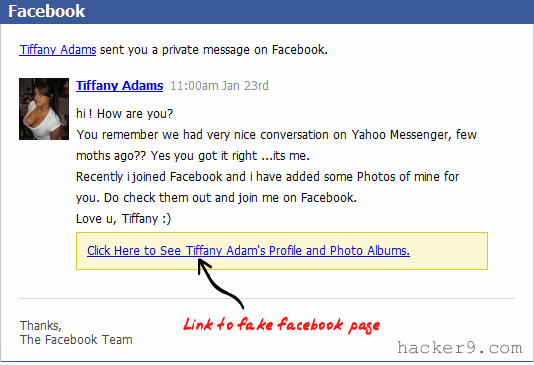 So, malicious individuals go for older accounts. Just about anyone can buy, say, a 10-year-old account of any country of choice.
So, malicious individuals go for older accounts. Just about anyone can buy, say, a 10-year-old account of any country of choice.
However, this approach to using fake profiles typically has one loophole—an inconsistent timeline. If you take a stroll on the timeline of some fake profiles and go back in time enough, you'll notice inconsistency in the way they post. Some people simply wipe off all previous posts and start afresh. This is why you should be wary of accounts with a blank wall.
Sometimes, you'll find a long period of dormancy where there's no post at all and then a period of almost daily posting. This is a red flag.
3. Strange Stories with a Plea for Help
If an account that you believe is used by a close friend or family member suddenly asks for information or help in an unusual way, treat it with caution. No matter how long you've been Facebook friends with someone, never believe any suspicious stories that might require any form of financial resources or confidential information from you.
The reason most scammers succeed in perpetrating their scams on Facebook is that the victims typically believe they know who they're dealing with. The stories can come in different styles. They could say you should help them pay for an online service because they're not with their credit card or something similar. And yes, there's the popular story about being a US soldier on a United Nations mission in Africa, who's desperately in need of your help to return to the US. Yep, fake Facebook profile.
4. An Account That Rarely Messages
A sizable number of fake accounts are run by bots or people who know little about you. As a result, they'll typically try to avoid any conversation that might reveal their lack of knowledge about you. This is why a good way to confirm whether or not an account is fake is to start a deep conversation.
5. Friend Requests From People Who Have No Mutuals
If you're getting lots of friend requests from accounts that do not have any mutual friends, there's a possibility that it's a fake account that's directly targeting you.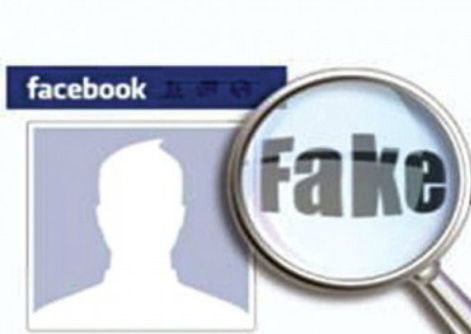 Sadly, there are a lot of fake profiles out there which are hand-crafted to deceive a particular person. These are trickier to spot, especially as they gain credibility by learning a lot about you. However, they're little slip-ups that you'll still notice along the way.
Sadly, there are a lot of fake profiles out there which are hand-crafted to deceive a particular person. These are trickier to spot, especially as they gain credibility by learning a lot about you. However, they're little slip-ups that you'll still notice along the way.
It's possible to block friend requests from people who have no friends in common with you. To do this, head to the Settings section of your Facebook mobile app, scroll down and tap on How people can find and contact you > Who can send you friend requests? > Friends of friends. You can also try out other ways to limit the people that can contact you on Facebook.
Protect Yourself From Fake Profiles
Try to teach your friends and family to stop blindly accepting friend requests. Millions of people will automatically approve any friend request they get, which opens them and all of their friends up to malicious links and deception.
If you're not sure if you know someone, send them a message asking them to remind you. If they can't or won't respond, then they probably aren't your friend. If you think the account is someone impersonating a friend, try contacting that friend through some previously verified method such as an email address or phone number you already have for them. Also, talk to mutual friends about whether an account that's communicating with you is genuine or not.
How To Spot A Fake Facebook Account
How do you manage your Facebook friends? Do you keep your list really tight and only include ‘active’ pals? Or do you accept everyone you’ve ever laid eyes on? I’m probably somewhere in between. But… if I have never had a personal conversation with them and ‘eyeballed’ them in the flesh, then they don’t get a guernsey!
Over the last few weeks I have received a steady increase of friend requests from people who I just don’t know. My gut tells me that these are fake accounts. Why? I’ve never eyeballed them, they have few or no friends, and have very little personal information available to share on their profiles. I mentioned this to my 20-year-old son who informed me he gets about 10 a week!
Why? I’ve never eyeballed them, they have few or no friends, and have very little personal information available to share on their profiles. I mentioned this to my 20-year-old son who informed me he gets about 10 a week!
And while it can be annoying being harassed by randoms – as my kids would say – the issue is far bigger than that. Fake Facebook accounts are usually designed by clever cyber crims who are trying to extract personal information from unsuspecting naive types – often kids. And why do they want our personal information? It allows them to put together a profile that they can use to apply for loans, mobile phone plans, etc – but we’ll get to that later.
How Big Is The Fake Account Issue?
In its latest reporting, Facebook nominated that it has a whopping 1.86 billion active monthly users. Now, in 2012 Facebook’ reporting stated that 8.7% of its accounts were either fake or duplicates. Even assuming the percentage has stayed about the same, that means there are now a monstrous 161 million fake Facebook accounts! So, it’s highly likely that you (and your kids) will have been affected.
How Can We Tell If A Facebook Account Is Fake?
Experts believe that fake accounts fall into two categories, being operated either by a bot (aka web robot) or by an ill-intentioned human. But irrespective of type, there are several warning signs that an account is fake. If the account in question displays three or more of these signs, then avoid it at all costs:
Beauty
Bots exploit beauty and often sport a pic of a gorgeously attractive girl or handsome guy on their pages. Why? We are only human – an enticing photo dramatically increases the chance of having a friend request accepted.
Not Many Pics
Bots tend not to post lots of photos. Their aim is to use minimum effort to create the illusion that a real person is behind the account so they don’t bother too much with fleshing out a personal life.
Weird Bio Information
If the biography information on the account seems fanciful or just plain unrealistic, then it’s likely not to be a legitimate account.
The Account Doesn’t Message
Bots can easily accept friend requests but can’t respond to messages. So, if you are unsure this is a great little test – just send a message and see what you get back!
Blank Wall
Blank walls are a dead giveaway for a fake account. If your possible ‘new friend’ has either no activity or just a few likes – then be suspicious!
Lots Of Likes
Some bot-controlled accounts are set up to like a certain amount of pages a day. Over time this can add up, so be wary!
Why Are Fake Facebook Accounts Created?
As mentioned earlier, cyber hackers create fake Facebook accounts with the aim of trying to friend people and get access to their personal information. Identity theft is their motivation. They can profit from this private information by personally taking out loans or credit cards in someone else’s name. Or – and this is more likely – they on-sell the information so others can do so.
But fake Facebook accounts can also be created just to make money. Buying and selling Facebook fans is a multi-million dollar business, as both companies and individuals pay big money to get fans and likes to their page. And with the software to create these fake Facebook pages costing no more than $200, you can see how easily profits can be made.
Buying and selling Facebook fans is a multi-million dollar business, as both companies and individuals pay big money to get fans and likes to their page. And with the software to create these fake Facebook pages costing no more than $200, you can see how easily profits can be made.
What To Do If You Are Sure A Facebook Account Is Fake
- Most importantly, do NOT follow or accept a friend request from the account.
- Report the account to Facebook by clicking the report option. When Facebook receives around 10-20 reports about a specific account they will investigate, so it’s worth doing.
Lastly, do NOT insist your kids delete their Facebook account because of the threat of fake accounts. Teaching our kids how to live online is probably one of our biggest jobs as parents of digital natives. Thinking critically, understanding risks, and learning how to navigate obstacles are skills that will hold them in good stead for their entire lives. Whoever thought discussing a face Facebook account could have so many benefits!
Reports from users of the site Korrespondent.
 net - "How to distinguish a fake Facebook account from a real one! Beware of scammers!"
net - "How to distinguish a fake Facebook account from a real one! Beware of scammers!" December 23, 2021 10:50 am
A few weeks ago, I received a friend request from "me". This is a typical example of Facebook's new "cloning" scam.
"How to tell a fake Facebook account from a real one! Beware of scammers!"
You can even punish them.
A few weeks ago I received a friend request from "me". This is a typical example of Facebook's new "cloning" scam.
Everything works very simply. Cybercriminals download your photo, usually directly from your own profile, overwrite any information you've made public, and then add all of your real friends.
After someone you know accepts a fake friend request purporting to be from you, scammers typically start extorting money, personal information, or even trying to infect your computer or phone with malware. The latter is very easy to do: you can simply send the desired link to the "PM" of the victim.
When this happened to my mother last year, a scammer (pretending to be my mother) wrote a heartbreaking story to my cousin asking for money. My brother texted me and I told him how to report it on Facebook.
A few hours later, another friend of my mom's received a message from the scammers: "click on this link to see a great YouTube video of you." She, too, was suspicious.
If she followed the link, scammers could infect her computer with malware and viruses, learn her passwords, and easily gain access to her bank account, email, and other accounts.
How to recognize a fake?
How do you know if a friend request is real or fake?
Here are a few things to pay attention to(!)
Do you already have this person as a friend?
This is the most obvious. All you have to do is see if you already have a Facebook friend with the same name.
No one has any reason to create more than one account. So, if your best friend from college is still on your friends list, but he just sent you another friend request, delete him right away. And then report it.
And then report it.
Check the photos of this account.
Let's say a hacker is likely to find some of your profile photos, but once you look into the albums, his plan falls apart completely.
Before accepting any request, click on the name and go to the profile page.
View profile photos and albums. If it's empty and only has a profile photo or a couple of random photos with no comments or likes, congratulations, you've caught a scammer.
Look through his friends list.
If the scammer is targeting you, their fake page is most likely just a shell with very little going on inside.
Look how many friends he has. If the list of friends is empty, complain right away, but even if there are many friends, it can all be fake pages or spam-like profiles.
Don't forget to check if you have mutual friends. If a person is not friends with any of your friends, it is almost certainly a scammer.
If you come across a fake account, block it, report it to Facebook and warn your friends.
On the main page of the scammer's profile, you can click on the "more" icon (three small dots in a row), which is located next to the profile photo. Then select "Report" from the pop-up window. Another window will appear in which you need to select "Report profile".
When you do this, Facebook will know to look at the account and take the necessary action. Once you've reported, click the more icon (three dots) again and select "Block" to permanently remove the account from your life.
Do not respond to links.
Even if you know about fake pages and ignore anonymous requests, any Facebook user can send you a message that will end up in the "Other" folder.
In #Facebook #Messenger they pop up as "message requests" and even someone who isn't your friend can send you nasty links and malware without much consequence.
Never click on the links you receive in these unverified messages. Do not interact with anyone who sends you a message request, even if he or she looks like someone you know.
Follow these rules and check accounts before replying to messages, and if you determine it's fake, go to the scammer's profile page, report it and block it.
Have you come across scammers on Facebook? Tell me in the comments!
The "Readers' Blogs" section is a platform for free journalism and is not moderated by the editors. Users independently upload their materials to the site. The editors do not share the position of the bloggers and are not responsible for the accuracy of the facts presented by them.
How to spot a fake social media account?
In social networks, quite often you can find spam messages: “Do you want to earn a lot of money today?”, “Do you want to lose weight without getting up from the couch?” and many other appeals that promise people everything at once.
Usually such mailing is done from fake accounts. Such "users" must be identified and removed from them in time, since an attempt to communicate with them can lead to the loss of personal time, as well as really important information. This article will talk about how you can detect a fake account on such popular social networks as Facebook, VKontakte, Odnoklassniki and Instagram.
- How to spot a fake Facebook account?
- How to detect a fake VKontakte account?
- How to detect a fake account in the Odnoklassniki social network?
- How to spot a fake Instagram account?
There are no automated ways to find fake accounts on the Facebook social network, so you will have to manually identify fake users. The first step is to check the main photo posted on the user page. To do this, just do the following:
- Go to the page of the verified user.
- Right-click on the photo of a person and select the item "Find this image in Yandex" in the context menu.

- Get acquainted with the results that the search engine will provide.
As you can see in the above example, we have a well-known resident of the Comedy Club project, and it is unlikely that he would write personal messages to anyone advertising goods or offering to buy a unique simulator that increases muscle mass in a matter of days. Therefore, if someone writes from such an account, then there is a huge probability that this is done by a fake user.
You should also be suspicious of all Facebook profiles with the main photos of a model appearance and those accounts that were created very recently (the Timeline application will help you find out the date of registration of your Facebook account).
In the VKontakte social network, determining the age of a user's page is also an indirect way to determine whether it is fake or not. This is done by identifying a unique user ID.
You can find a unique identifier (ID) by going to the user's page and looking at the address bar of the browser. Based on this information, you can determine the approximate date the account was created. For example, if the user ID has a value in the region of 100000000, this indicates that he opened an account in 2020. In the example above, the user ID is 300905727, indicating that the page was created quite recently.
Based on this information, you can determine the approximate date the account was created. For example, if the user ID has a value in the region of 100000000, this indicates that he opened an account in 2020. In the example above, the user ID is 300905727, indicating that the page was created quite recently.
Next, you need to check the user's activity on his own VKontakte page. A real user in the album will always have a couple of personal photos added at different times. In addition, a real person reposts a wide variety of entries on different days, adds audio recordings and videos. The number of friends a real VKontakte user has varies from 20 to 500 people, but there are exceptions. If the number of friends of a suspicious user goes into the thousands, then most likely they are all cheated.
The Odnoklassniki social network is considered to be a platform for adults of sufficient age (those over 30), so fake accounts are especially common here. Usually they are created by people who want to try on someone else's image, chat with their friends under an assumed name, advertise something without obviously damaging their own reputation.
In principle, checking an account in the Odnoklassniki social network for authenticity is carried out in much the same way as in other social networks: you need to check the presence of the main photo of the account on the Internet, look at the date of registration in the system, as well as the quality of filling in the user profile.
If a copy of the personal page of a real person was found on the Odnoklassniki social network, you can file a complaint against the author of the "fake". To do this, you will need to go to his profile, select the “Other actions” item in the menu and click on the “Complain” button, while indicating registration under a false name and surname as the reason for filing a complaint.
To identify a fake Instagram page, follow the steps below:
- Check user photos: fake accounts often post photos of beautiful people in sexual or simply attractive poses in order to maximize the attention of other users (photos in the family circle fake accounts usually don't).

- View photo upload dates - fake users post all their photos on the same day, and often even the same minute.
- The feed of fake accounts is spammed with various posts that do not carry any significant semantic load.
- Fake rarely responds to comments, as well as to the description of published photos.
A special case is fake accounts maintained by specially trained programs (bots). They are scrupulous about filling in all the data and are always active on the page entrusted to them. It is possible to calculate such fakes only when communicating in personal correspondence.
Summing up, it can be said that it is quite easy to identify fake accounts in social networks, but for this you need to follow at least elementary precautionary rules. You should never enter into an active dialogue with unfamiliar users, and even more so, accept any files from them or follow the links provided by them. And if you find a fake account, you must immediately report it to the administration of the social network through the form for sending a complaint or feedback.

